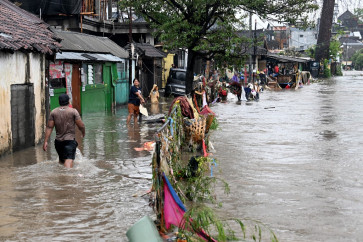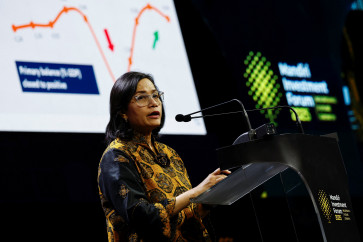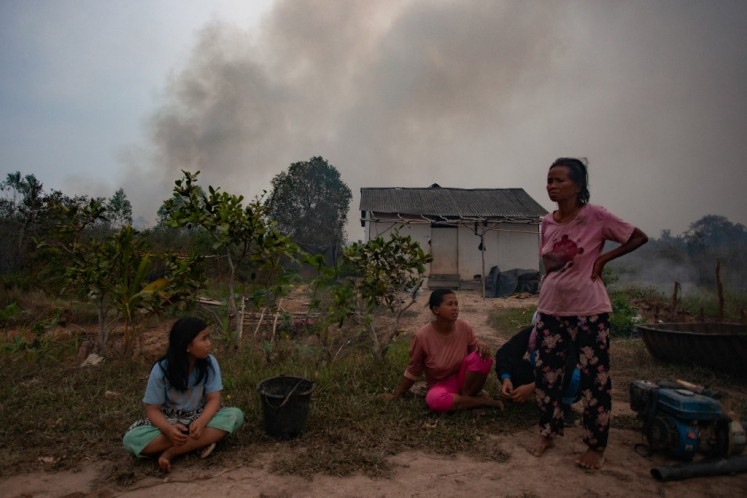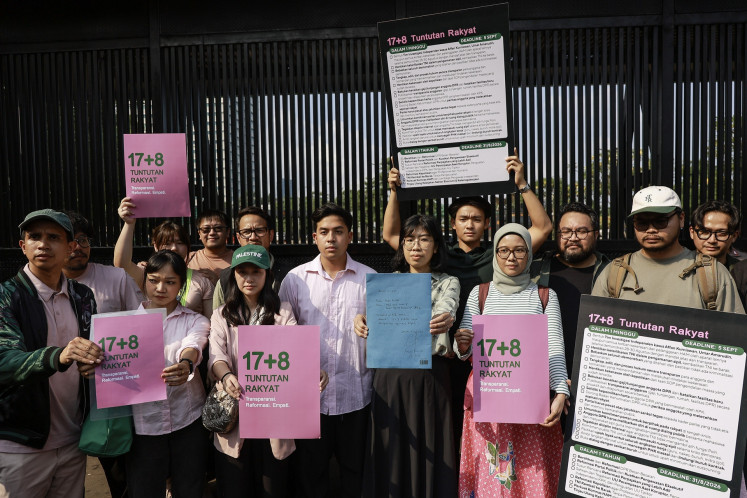Popular Reads
Top Results
Can't find what you're looking for?
View all search resultsPopular Reads
Top Results
Can't find what you're looking for?
View all search resultsKaveh Kanes: A Poignant Recording of Childhood Memories
The band: Kaveh Kanes creates melancholy music with 80s-pop flourishes
Change text size
Gift Premium Articles
to Anyone
The band: Kaveh Kanes creates melancholy music with 80s-pop flourishes.(Courtesy of Kolibri Rekords)
Kaveh Kanes comes from the same scene that has bred rising dream-rockers Bedchamber, Gizpel and ATSEA. In fact, the similarity extends to being under the same independent label (Jakarta's Kolibri Rekords) as those bands.
Basking under the same sunny/partly-cloudy melancholy trip of their peers, the three guys behind Kaveh Kanes cannot help but reference the 1980s with their trebly guitars, reverb-soaked drums and ghost-spoken vocals.
The result is a very catchy indie pop album that sounds very current in its throwback quality, though admittedly music fans who actually did experience the '80s might find Kaveh Kanes' debut Capital a bit too wink-wink for its own good.
Consisting of brothers Asad Gibran on vocals and Muchammad 'Mumu' Najib on drums, with Zaimuddin 'Zaim' Mukkarom on guitars, the trio formed in 2011 with even more brothers in their lineup, before those guys faded out.
The band took their inspiration from 'the first Arabian coffee shop', which, according to Mumu, is a form of homage to their Arabian ancestry.
'Also because of our Saiyan-level coffee drinking,' adds Asad, referring to a powerful character in the Japanese comic book Dragon Ball.
For Capital, Mumu says that the band tried to collect childhood memories. But the production was not an easy process; having previously lived and begun their recording process in Yogyakarta, two-thirds of the group ' Asad and Zaim ' decided to move to Jakarta and Cirebon, respectively, for work.
That meant that the production process was spread between the three cities, which proved to be ineffective, though they eventually managed to finish the record.
There was also the case of the aforementioned lineup change, which meant that Zaim had to move from his previous role as bass player to mantling up the guitar (live, the band performs with two additional players to round up their sound).
For inspiration, the band took their '80s template and added themes and ideas from a variety of subjects, including The Sound of Music, says Mumu, as well as Asad's penchant for documentaries, particularly Martin Scorcese's George Harrison study Living in the Material World and the Ayrton Senna biopic Senna.
'Senna taught me about the power of determination, while Living showed me that material things matter very little,' explains Asad regarding the attraction the two films have for him.
When asked to pick their favorite tracks from the album, the three members all agree on one specific song, the Shoegaze-pop number 'Starlet', a clear stand-out on an album filled with promising tracks.
'The song has a lot to do with loss, grief, heartbreak and the hope of healing from wounds, scars and pain,' explains Mumu.
For the members of Kaveh Kanes, Capital could not be more personal.
'The themes of this album are things we often forget about even though they are incredibly important to us; our childhood memories, dreams, bravery and even nature. Not enough people spend time [thinking about] those things. For me, this is a personal album, since I wrote the lyrics during my move from Yogyakarta to Jakarta,' Asad explains.
'The lyrics pertain to my sadness and disappointment at having to leave things behind but also my rise from that sadness. I'm moving on.'










